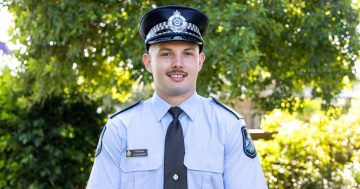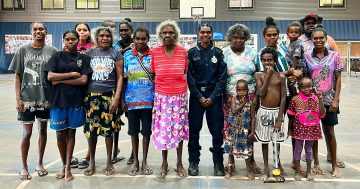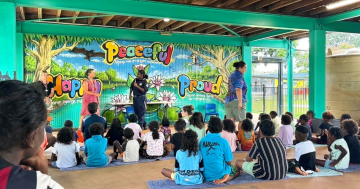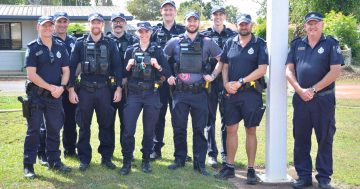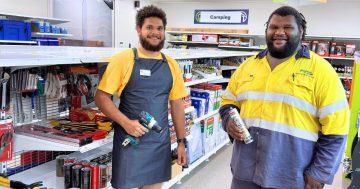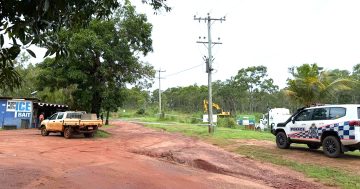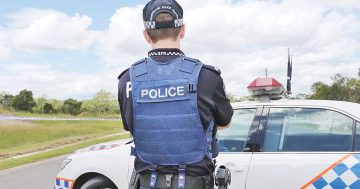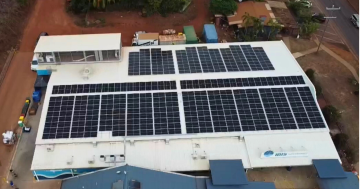
21-year-old Bamaga local Jamani Elu is ready to serve and protect her community after graduating as a Protective Services Officer. Photo: Supplied.
Bamaga’s first group of Protective Services Officers (PSO) are ready for duty after completing an intense five-week training course designed to bring First Nations people into the Queensland Police Service role.
The five new PSOs celebrated with family, friends and fellow officers at their graduation ceremony late last month, donning new uniforms and a drive to protect their community.
One new graduate, 21-year-old Jamani Elu, said she wanted to become a PSO to try something new, and be a positive role model for local youth.
Her desire to lead young people was inspired by her grandmother, who was a teacher for more than 30 years, and being the oldest of nine siblings.
“This position is at the school, so it’s sort of like helping kids and keeping my community safe – the teachers, the students, and the education buildings,” she said.
“I have eight younger siblings who I look after with my parents, so caring for children is one of my strengths.”
Senior project officer Pete Ingram said as part of the First Nations Protective Services Group Project, people like Ms Elu were helping to break down barriers between police and Indigenous communities.
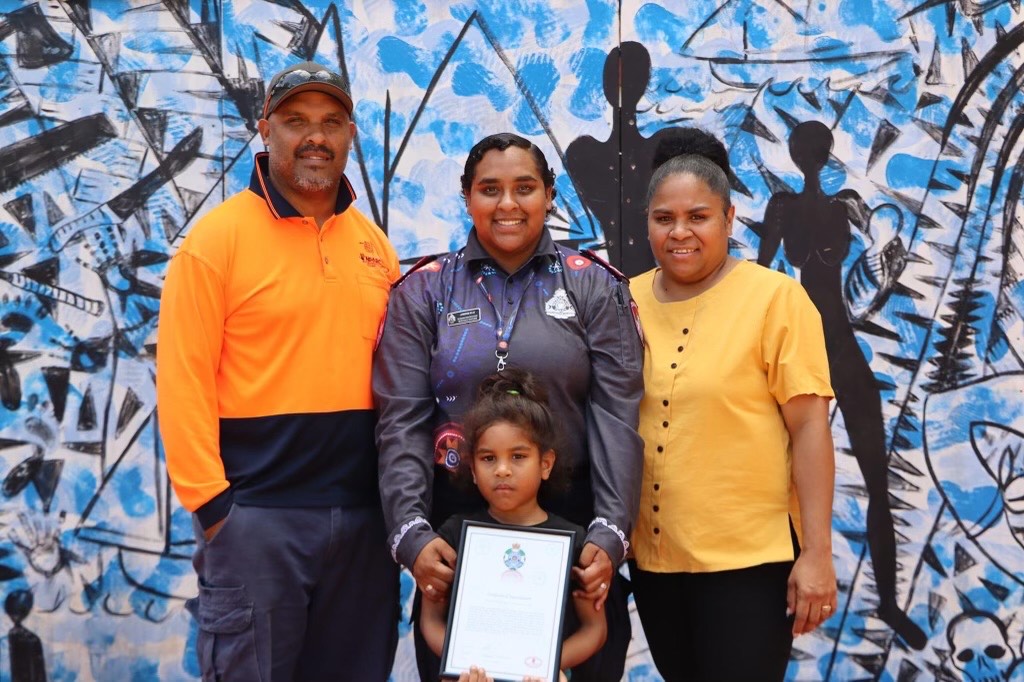
Ms Elu’s parents and younger sibling attended the graduation ceremony to celebrate her new role. Photo: Supplied.
“Protective services looks after state government infrastructure, and it’s predominantly done in communities by subcontractors that are FIFO workers,” he explained.
“I thought it’d be really good with Closing the Gap and reframing relationships to try and recruit, train and engage local people to do it, who can then be engaged with their community because they’re a part of it.
“Getting the community support was a hard one; dropping something new into a community that generally have a distrust of police, and saying come and work for us hasn’t been an easy thing to do, but we’re breaking down some barriers.”
Ms Elu said she believed the local involvement in police roles was a positive step for her community.
“I would say being in this position is really good – having the kids looking at you, asking questions and being an inspiration for them while keeping the community safe,” she said.
“We know everybody, everybody respects everybody, and I think that’s how you know it’s good to have locals protecting the schools and stuff.
“If the community can also be in this kind of position, then I think it sort of brings everybody together, instead of having to see everything separately.”

The five new Bamaga PSOs hope to build the relationship and trust between the police and community. Photo: Pete Ingram.


